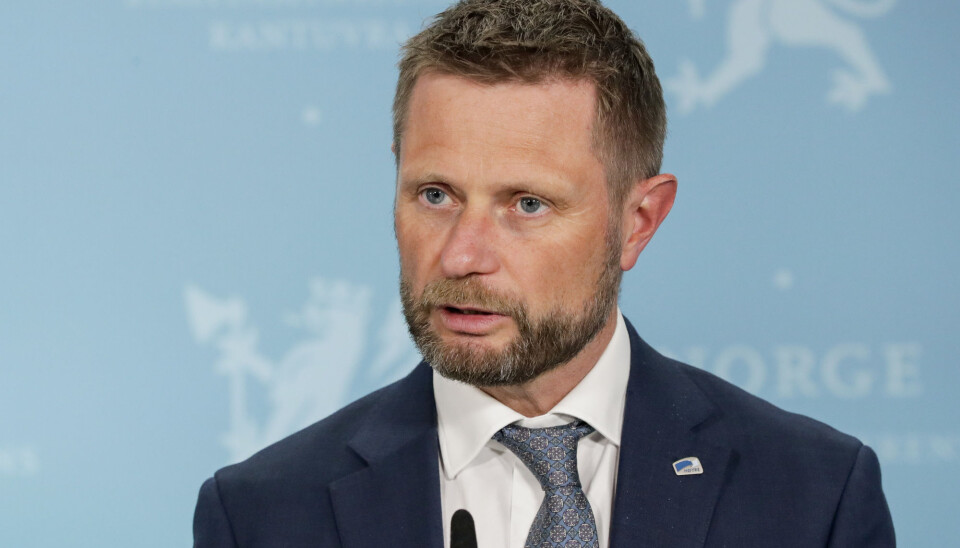
Norway continues the pause in vaccinations with AstraZeneca
The Norwegian Institute of Public Health recommended that the AstraZeneca vaccine be removed from the Norwegian vaccination programme - but the government wants to wait until we know more.
The Norwegian Institute of Public Health, NIPH, has recommended that the Norwegian government remove the AstraZeneca vaccine from the Norwegian vaccination programme.
Denmark has already decided to remove the vaccine from their programme, but the Norwegian government has however decided to not follow.
Instead they continue to pause use of the vaccine.
“The government is of the opinion that we do not have a good enough foundation on which to make a final decision on this issue,” Minister of Health Bent Høie said at a press conference today.
Weighing side effects against re-opening society
An expert panel has been commissioned to investigate the issue further, and has been tasked to deliver a report on May 10.
“I am worried about the side effects that have been connected to the vaccine, but I am also worried about delaying vaccination and thus the possibilities for reopening society,” Høie said.
While taking the AstraZeneca vaccine out of the vaccination programme would merely lead to a 1-2 week delay, the loss of Johnson & Johnson – which uses the same adenovirus technology as AstraZeneca – would lead to an 8-12 week delay.
This is an important reason for why the government has decided to continue the pause and investigations.
May impact the use of Johnson & Johnson
“If we say no to this now, it may have consequences for our possibilities to use Johnson & Johnson, which is based on the same technology. Then we risk not reaching our goal of vaccinating all Norwegians above the age of 18 before the summer – meaning we have to live longer with strict infection control measures and risks of new outbreaks,” Høie said.
The commission will not only look at what is known about side effects from vectorbased vaccines. They will also take into account the consequences for the health of the population in Norway if the country has to continue with infection control measures longer than the rest of Europe.
“We have to be open to waiting for the results of all the studies that are ongoing to find out more about what may be the problem with the vector vaccines. We have to be open to new knowledge,” Minister of Health Bent Høie said.
A 7 week delay for those aged 18-44
A new vaccination schedule using only mRNA vaccines would cause no delay for health personnel and for those aged 65 and older.
People aged 18-64 years with underlying conditions would be looking at a 1-4 week delay before they got their shots.
The largest delay would be for people in the ages 18-44. With the previous scenarios including Johnson & Johnson this group would get their vaccine before the summer. Using only mRNA vaccines this would be delayed by 7 weeks.
Both Health Minister Bent Høie and Camilla Stoltenberg, director of the NIPH stressed that the recommendations and decisions made on this topic are based on the current situation in Norway, where the spread of the coronavirus is largely under control. Should this situation change, then changes in the vaccination programme could be considered rapidly.
By the time the new expert panel delivers its report, people in older age groups will already be vaccinated, thus rendering the option of giving the vaccine to this group obsolete.
The expert panel will also be tasked with deciding whether or not people can take the AstraZeneca vaccine voluntarily.































